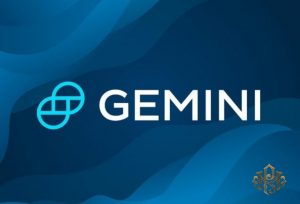
Close



Customers of Gemini Exchange whose accounts were frozen claim they were deceived into believing the Federal Deposit Insurance Corporation was insuring their assets (FDIC).
Customers of Gemini argue that by using unclear phrasing in marketing materials and customer assistance, the exchange deceived them about the FDIC status of their GUSD stablecoin deposits on the platform.
The New York Department of Financial Services looked into Gemini after many consumers complained that the exchange did not distinguish between the FDIC status of its own bank deposits of stablecoins and Gemini’s client goods.
Federal legislation in the United States makes it against the law to misrepresent the FDIC insurance.
Gemini’s customer care informed one client that his GUSD kept at other financial institutions was qualified for FDIC protection when the customer inquired about the FDIC status of the GUSD stablecoin held in his interest-bearing Gemini Earn account. The GUSD in the customer’s Earn account is at this moment frozen.
Customers of Gemini might earn up to 7% in interest per year on cryptocurrency deposits. After lending partner Genesis Global Capital halted withdrawals and loan originations on November 16, 2022, Gemini put an end to withdrawals from its Earn product.
By lending Earn clients’ deposits to other institutions at a greater interest rate, Genesis created interest for them. Gemini reportedly received an agency fee of up to 4.29% of the interest that had accumulated. On January 19, 2023, Genesis apparently declared bankruptcy, owing its top 50 creditors around $3.5 billion. It owes around $900 million to more than 300,000 Gemini Earn clients.
Due to their sale of the Earn product as an unregistered security, Gemini and Genesis are under investigation by the U.S. Securities and Exchange Commission.

Because Cameron and Tyler Winklevoss, Gemini’s founders, have a solid track record, several investors have invested in the company.
In 2019, aggressive marketing efforts depicted Gemini and the Winklevii as the bringers of order in a mainly anarchic sector, with slogans like “Crypto Without Chaos” and “The Revolution Needs Rules,” plastered on subways and cab tops.
The Winklevii promoted the exchange’s “ask for permission, not for forgiveness” guiding principle in a 2019 blog post.
Additionally, Gemini promoted its registration with the New York Department of Financial Services as a limited-purpose trust business as evidence of its reliability.
According to the blog post, “We took this course because we thought that in order to construct the future of money, we first had to develop confidence in this new asset class.”
aggressive marketing initiatives with catchphrases like “Crypto Without Chaos” and “The Revolution Needs Rules” plastered throughout subways and taxi cabs
According to Dennis Kelleher of Better Markets, a nonprofit that promotes market monitoring, Gemini purposefully misleads its investors.
Everyone is aware of the importance of having FDIC insurance for investors’ peace of mind and trust, he told Axios. He chastised the exchange for giving investors a feeling of “false comfort” by giving the impression that it was legitimate.
Whether the FDIC will take any enforcement action is unknown, though. Since 2008, it has only taken one significant enforcement action, which resulted in a $100,000 fine.